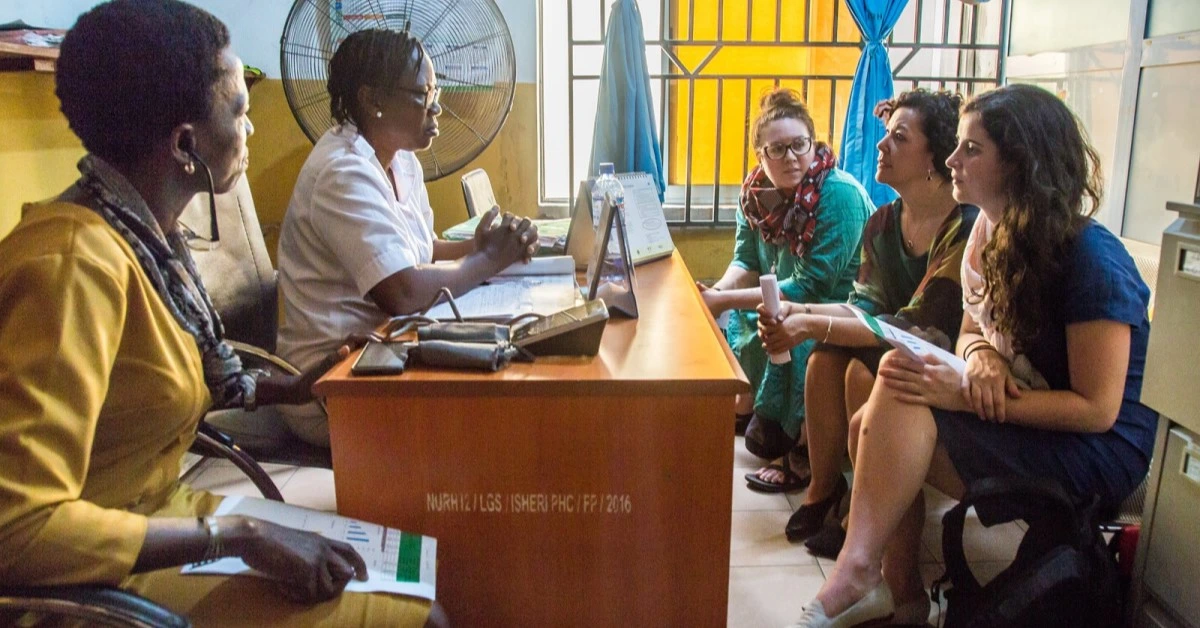
USA – At the UN General Assembly in New York, the European Union (EU) and the Bill & Melinda Gates Foundation announced they are creating new financing mechanisms to improve access to essential health products, like contraceptives and maternal health medicines, in low- and middle-income countries (LMICs).
This initiative is aimed at addressing barriers to health product availability, ultimately empowering women to make informed decisions about their family planning and improving overall community health.
After a pivotal meeting between Nadia Calvino, President of the European Investment Bank (EIB), Jutta Urpilainen, European Commissioner for International Partnerships, and Bill Gates, Co-chair of the Bill & Melinda Gates Foundation, the EU and Gates Foundation pledged to collaborate with partners such as the UNFPA to lower costs and improve access to essential health products.
“Every woman, everywhere, should have the right to plan a family, pursue an education, and follow her dreams,” said Nadia Calviño, EIB President.
“Safe and affordable contraception makes this possible. We are proud to partner with the United Nations Population Fund, the European Commission, and the Gates Foundation to reduce costs and barriers for women and make sure they are in the driving seat of their own lives.”
The new mechanism aims to help UNFPA reduce barriers to accessing contraception and maternal health medicines, ensuring that more women can access these essential products.
As part of this initiative, UNFPA will be able to frontload multi-year donor commitments, enabling better planning and sustainability in providing family planning solutions.
Delays in order placements due to funding gaps
Currently, UNFPA faces delays in placing orders to support national plans due to the lack of available funds, with more than 60% of donation commitments being multi-year.
This new mechanism will help to overcome this limitation, ensuring more predictable and efficient supply chains.
The initiative is expected to be led by the EIB, supported by the European Commission, with funding from the Bill & Melinda Gates Foundation to the UNFPA Supplies Partnership, which will be delivered over five years.
In addition, the EIB and the European Commission are developing new financial guarantees of up to €170 million (US $183 million) to boost the availability of gender and human development products.
These guarantees will stipulate a set volume of new products to be manufactured, encouraging investment in the production of life-saving health products at scale.
This effort is part of a broader partnership aimed at improving health and nutrition in LMICs, as part of the Human Development Accelerator (HDX) initiative under the Global Gateway program.
“Promoting gender equality is at the core of the EU’s external action,” said Jutta Urpilainen, European Commissioner for International Partnerships.
“We are proud to invest in sexual and reproductive health products and services that empower women to reach their full potential, and contribute to building inclusive, prosperous communities.”
In his statement, Bill Gates highlighted the importance of this partnership in addressing the global contraceptive gap.
“Far too often, women in low- and middle-income countries don’t have the contraceptive choices they want, and there’s not enough being done to close that gap.
“The European Institutions’ leadership will make a huge difference in the lives of women and in the health of entire communities and countries—because when women can control their health and financial futures, everyone benefits.”
Global impact and funding gap
Currently, over 257 million women and girls in LMICs who want to avoid pregnancy are not using modern contraceptive methods.
Without increased funding, there is an anticipated US $1.5 billion funding gap for contraceptive products by 2030.
Moreover, over 40% of service delivery points in LMICs report stockouts, leading to long waiting times and interrupted access to essential health services.
This new financing mechanism represents a significant step toward bridging this gap and empowering women to access the reproductive health services they need.
XRP HEALTHCARE L.L.C | License Number: 2312867.01 | Dubai | © Copyright 2025 | All Rights Reserved